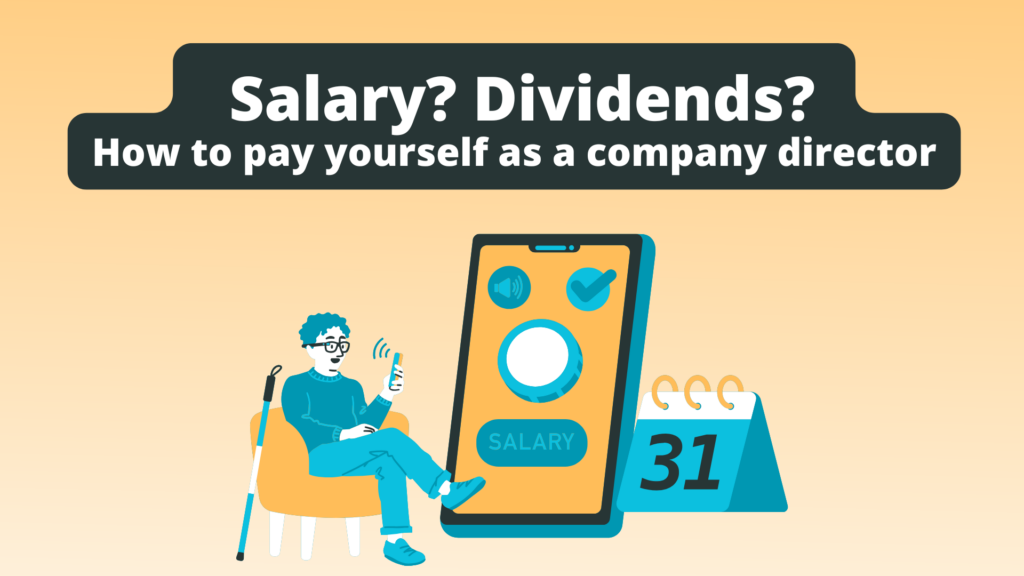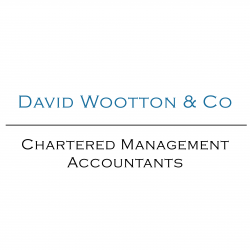If you’re a director of a UK limited company, determining how to pay yourself – through salary, dividends, or a combination of both – is a crucial part of tax efficiency.
In this article we explore the pros and cons of each approach to help you make an informed decision.

Paying Yourself a Salary
Opting for a salary means your company pays you through the PAYE (Pay As You Earn) system. This salary is a deductible business expense, reducing your company’s Corporation Tax liability.
The Advantages
- Tax Deductible: Salaries reduce your company’s taxable profits.
- State Benefits: Regular salary payments contribute to your National Insurance record, maintaining your entitlement to state benefits and pension.
- Stable Income: Provides a consistent income stream.
Considerations:
Employer registration: If you decide to take a director’s salary, you may need to register your company as an employer with HMRC and enrol for Pay As You Earn (PAYE). This requirement applies even if you’re the only person working for your company.
National Insurance Contributions (NICs): Both employer and employee NICs apply, which increase the overall tax burden for your business.
Income Tax: Salaries are subject to Income Tax based on your tax band.
For the 2024/25 tax year, the personal allowance is £12,570. Earning up to this amount means you won’t pay Income Tax. However, NICs may still apply depending on your salary level.
Paying yourself through dividends
Dividends are distributions of your company’s post-tax profits to its shareholders. Dividend income is reported and taxed differently from salary income. It’s not paid through PAYE, and isn’t subject to Income Tax or National Insurance contributions.
Advantages:
- Lower Tax Rates: Dividend tax rates are generally lower than Income Tax rates.
- No NICs: Dividends aren’t subject to NICs, reducing your tax liability.
- Flexibility: You can time dividend payments to suit your financial needs and the business’ performance.
Considerations:
Profit dependency: Dividends can only be paid if your company has sufficient post-tax profits.
Tax-free allowance: For 2024/25, the first £500 of dividend income is tax-free.
Dividend Tax Rates for 2024/25:
- Basic Rate: 8.75% on income between £12,571 and £50,270.
- Higher Rate: 33.75% on income between £50,271 and £125,140.
- Additional Rate: 39.35% on income over £125,140. ([1st Formations][4])
Combining Salary and Dividends
Many directors find that a combination of a modest salary and dividends offers the most tax-efficient approach. For instance, taking a salary up to the personal allowance threshold ensures no Income Tax is due, while the remainder of your income can be drawn as dividends.
By structuring your remuneration this way, you will pay less personal tax than by taking all your income as a director’s salary. Plus, you won’t pay employee NICs on your salary, and your company will be able to avoid, minimise, or offset any employer’s National Insurance liability.
Additional Considerations
Pension Contributions
Your company can make pension contributions on your behalf, which are deductible business expenses and can reduce your Corporation Tax bill.
Director’s Loans
While it’s possible to borrow money from your company, strict rules apply, and improper use can lead to tax penalties.
Family Involvement: If family members assist in your business, compensating them through salaries or dividends can be tax-efficient, provided it’s justified and complies with HMRC regulations.
In summary…
Choosing the right mix of salary and dividends depends on your company’s profitability, personal financial needs and long-term goals. An accountant can help you tailor a strategy that aligns with your circumstances and ensures you stay the right side of tax laws.
As Lune Valley accountants we work with limited companies and sole traders to provide tax advice, company accounting and payroll services. Get in touch with us today.

